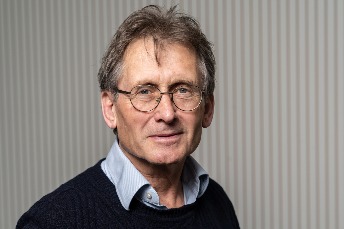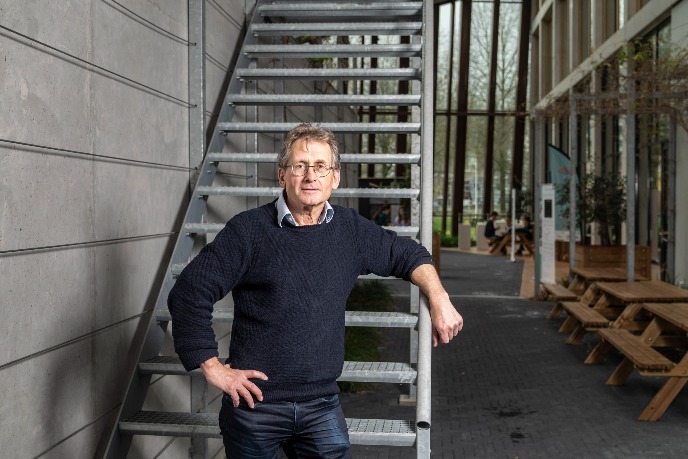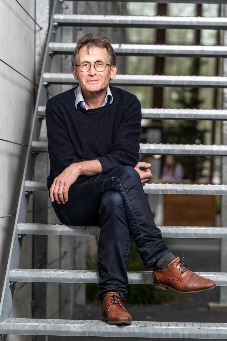‘The University is a goldmine of applicable ideas’

After winning the Nobel Prize, Ben Feringa is set on just one thing: putting science on the map. The acclaimed chemist is tirelessly touring primary and secondary schools and holding lectures at community centres as well as at international universities. The awarding of the Ben Feringa Impact Award is the next stop on his mission. On 25 May, he will appear at Forum Groningen to give a new boost to impact-driven scientific research.
Text: Riepko Buikema, Communication Office. Photos: Reyer Boxem
How wonderful would it be, fantasizes Feringa in his office, if every Master’s student would have to write half a page on the economic or societal importance of their own thesis? ‘Explain to a layperson how you are helping to give shape to the future, in a journalistic style. I am a huge advocate of this. It is a fantastic way to have students think about the possible applications of their knowledge in solving current problems. In a decade or so, they will be our societal leaders, or innovators in industry.’
Societal value
The University is a pillar for change - and that is exactly what the Ben Feringa Impact Award wishes to shine a spotlight on; the economic, social, or industrial value of scientific knowledge produced by students and researchers, which must not be underestimated. ‘We have an incredible amount of young talent here, full of fantastic ideas. From law to medicine and from spiritual care to the materials of the future. There is a lot to gain by better conveying the applicability of this knowledge.’

To dare
On his trips abroad, Feringa sometimes looks with envy at the unparalleled entrepreneurial spirit of alumni from other universities. ‘Take Cambridge Science Park, for instance. Or Stanford, at the heart of Silicon Valley. Almost 40 percent of PhD students there start their own businesses. It is normal to try something out there, with nerve and entrepreneurship. With this mentality, we could also get more out of what we discover and think up. With more guts. Go on, you are still young - take a risk! Use your creativity!’
Strong together
In this way too, the Ben Feringa Impact Award can give a push in the right direction, as its namesake guarantees. Visibility and showing what the University stands for helps in generating collaboration with the business world. ‘That is incredibly important if you really want to achieve something. We need businesses for resources, manufacturing, and knowledge. Even those from the fossil fuel industry. As a University, we provide fundamental possibilities; that is our task. But for large-scale applications, you need partners.’

Unlimited fundamental research
It is essential that each actor’s own identity and role remains crystal clear. The University as an academic playground, with sufficient freedom for unlimited fundamental research. ‘I strongly believe that this leads to new things. But often, you cannot directly draw out the importance of such findings. Take the Covid-19 vaccines, for instance. They are based on discoveries from the early eighties. Only twenty years later did the importance of these findings become clear, and another twenty years later were we able to make vaccines. Now that’s impact.’
More news
-
17 February 2026
The long search for new physics
-
10 February 2026
Why only a small number of planets are suitable for life
